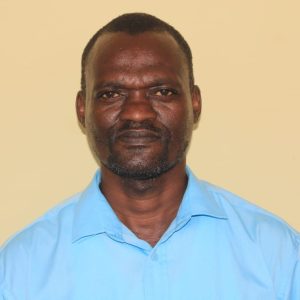
Dr. Lucky Mulwa
Head of Department
The Applied Sciences Department is a hub of innovation and excellence, renowned for its groundbreaking research and achievements showcased at national Trade and TVET Fairs. Our dedicated team of highly skilled trainers not only serves our department but also supports other academic programs, fostering a dynamic learning environment.
With over 400 students enrolled across diverse programs, our department is equipped with five advanced laboratories catering to various disciplines. Our state-of-the-art Instrumentation Laboratory, featuring cutting-edge equipment such as GCSM, FITR, Oxygen Bomb Calorimeter, and Kjeldahl Apparatus, was generously donated by the Government of Kenya. These facilities support both training and research, as well as our Department’s Production Unit. Additionally, we house a specialized Food Science Workshop to further enhance practical learning.
Our graduates are well-prepared to excel in the Manufacturing, Analytical, and Research industries, providing skilled expertise to drive innovation and progress.
The trainees sit for summative examinations at the end of each module; continuous assessment takes place throughout the module.
The programs offered in the Department are:
| S/N | Programme |
| 1 | Analytical Chemistry Technology Level 6 |
| 2 | Applied Biology Level 6 |
| 3 | Applied Statistics Level 6 |
| 4 | Aquaculture Level 6 |
| 5 | Agripreneurship Level 6 |
| 6 | Dairy Plant Management Level 6 |
| 7 | Environmental Technology Level 6 |
| 8 | Food Technology Level 6 |
| 9 | Industrial Chemistry Level 6 |
| 10 | Science Laboratory Technology Level 6 |
| 11 | Agripreneurship Level 5 |
| 12 | Dairy Plant Technology Level 5 |
| 13 | Food Technology Level 5 |
| 14 | Aquaculture Level 5 |
| 15 | Science Laboratory Technology Level 5 |
| 16 | Dairy Plant Technology Level 4 |
CBET programmes are now offered in a modularized format. Each module is designed to equip the trainee with a specific skill, enabling them to confidently perform a particular task. Therefore, every module serves as an exit point. To achieve full certification at each level, a trainee must successfully complete a predetermined number of modules as follows:
- Level 3: 1 module plus an industry training session (300 – 599 hrs)
- Level 4: 2 modules plus an industry training session (600 – 1199 hrs )
- Level 5: 4 modules plus an industry training session (1200 – 2399 hrs)
- Level 6: 7 modules plus an industry training session (some courses may take 6 modules plus Industry training session) (2400 – 4799 hrs)
Each module is completed within one term, and a trainee must successfully complete a module before progressing to the next. All programmes begin with Module 1, which is common across all levels of the same programme. Trainees may advance from one level to the next upon successful completion of the preceding level. Credit transfers are permitted, and trainees are exempted from modules covered in earlier levels that they have successfully completed.





 Users Today : 79
Users Today : 79 Users Yesterday : 1140
Users Yesterday : 1140 This Month : 18855
This Month : 18855 This Year : 65272
This Year : 65272 Total Users : 422926
Total Users : 422926